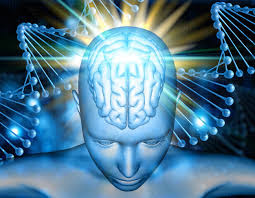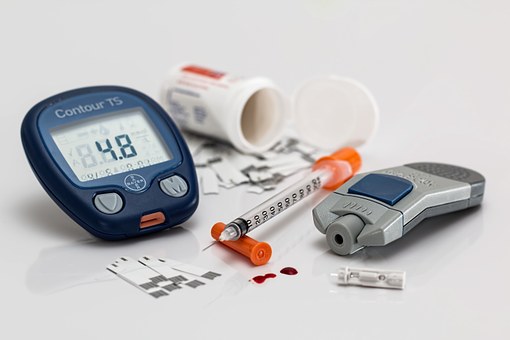All About Heart Health
“Start each day with a grateful and healthy Heart.”
Importance of heart
Importance of heart
The human heart is an organ that pumps blood throughout the body by the way of the vascular system, supply oxygen and nutrients to the tissues and removing carbon dioxide and different wastes. "If [the heart] isn't able to provide blood to the organs and tissues, they will die."
How to make your Heart healthy?
1. Cut down on salt
If you take a diet high in salt, it can raise your blood pressure and can increase your risk of heart disease or stroke. The suggested daily intake of salt is 6g for adults and 3g for youngsters.
2. Eat less sugar
Too much sugar in your diet may lead to weight gain, which may raise your blood pressure and result in diabetes and cardiovascular disease. Always eat fresh fruits with yogurt rather than sugary puddings and cakes.
2. Eat less sugar
Too much sugar in your diet may lead to weight gain, which may raise your blood pressure and result in diabetes and cardiovascular disease. Always eat fresh fruits with yogurt rather than sugary puddings and cakes.
3.Limit saturated fat
Eating an excessive amount of saturated fat – found in butter, ghee, margarine, fatty meats, dairy fats and processed foods like pies, pastries, and cakes – is believed to extend cholesterol levels. Therefore switch to semi-skimmed milk and low-fat dairy foods rather than full-fat ones, use steamed or grilled meat rather than frying.
Eating an excessive amount of saturated fat – found in butter, ghee, margarine, fatty meats, dairy fats and processed foods like pies, pastries, and cakes – is believed to extend cholesterol levels. Therefore switch to semi-skimmed milk and low-fat dairy foods rather than full-fat ones, use steamed or grilled meat rather than frying.
4. Fill up on fruits and vegetables
Increase the quantity of potassium in your diet by eating a minimum of 5 portions of fruit and veg every day. (potassium will facilitate to lower your pressure level)
Increase the quantity of potassium in your diet by eating a minimum of 5 portions of fruit and veg every day. (potassium will facilitate to lower your pressure level)
5. Go for more fish
Oily fish like pilchards, sardines, mackerel, salmon and fresh tuna, are rich in omega-3 fatty acids, that are thought to be useful for your heart because they improve your cholesterol levels.
Oily fish like pilchards, sardines, mackerel, salmon and fresh tuna, are rich in omega-3 fatty acids, that are thought to be useful for your heart because they improve your cholesterol levels.
6. Quit smoking
Smoking is also one of the causes of cardiovascular disease, and smokers are nearly twice as likely to have a heart attack compared with people who are not a smoker. It not just damages the lining of your arteries but also reduces the amount of oxygen in your blood and raises your blood pressure.
Smoking is also one of the causes of cardiovascular disease, and smokers are nearly twice as likely to have a heart attack compared with people who are not a smoker. It not just damages the lining of your arteries but also reduces the amount of oxygen in your blood and raises your blood pressure.
7. Cut back on alcohol
Alcohol may have an effect on your heart by inflicting high blood pressure, abnormal heart rhythms and harm to the heart muscle. However, you don’t have to give it up completely. Simply stick with the standards for moderate alcohol drinking, which are two to three units every day for ladies and three to four for men.
Alcohol may have an effect on your heart by inflicting high blood pressure, abnormal heart rhythms and harm to the heart muscle. However, you don’t have to give it up completely. Simply stick with the standards for moderate alcohol drinking, which are two to three units every day for ladies and three to four for men.
8. Get more exercise
Studies show that people who aren’t very active are at high risk of heart attack than those that are. Aim to induce a minimum of 150 minutes of moderate-intensity activity a week to lower your risk of developing coronary heart disease.
Studies show that people who aren’t very active are at high risk of heart attack than those that are. Aim to induce a minimum of 150 minutes of moderate-intensity activity a week to lower your risk of developing coronary heart disease.
9. Keep your weight down
If you’re heavier than you should be, your risk of high blood pressure, high cholesterol, and type two diabetes are on top.
Lose excess pounds – and keep those pounds off in the future.
If you’re heavier than you should be, your risk of high blood pressure, high cholesterol, and type two diabetes are on top.
Lose excess pounds – and keep those pounds off in the future.
10. Keep stress under control
If you’re under tons of stress, you will be more likely to smoke, take very little or no exercise and drink over a moderate quantity of alcohol – all of which are connected with heart issues.
If you’re under tons of stress, you will be more likely to smoke, take very little or no exercise and drink over a moderate quantity of alcohol – all of which are connected with heart issues.
“Always listen to your Heart. It may be on your left, but it’s always right”
















